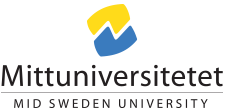The Swedish Winter Sports Research Centre (SWSRC) has two primary research foci: sports and performance and sports and health.
In sports and performance, the physiological research at SWSRC primarily focuses on aerobic energy processes and the factors that limit aerobic performance capabilities. The aim is to explain physiological mechanisms using research questions that are relevant and applicable in the field of sports. Biomechanical research is focused on through the analysing of internal and external loading and forces in bodies and materials. Biomechanical measurements can quantify movement patterns and forces in different work forms and be individually optimised. A special area of interest for SWSRC is conducting studies in which the knowledge fields of physiology and biomechanics are integrated, with the aim of achieving a more inclusive understanding of factors that influence performance. This is primarily done using cross-country skiing and biathlon as the working models, both in the laboratory and in the field.
Physical inactivity is a major contributing factor in a range of modern health problems, such as type 2 diabetes, Reaven’s syndrome, and cardiovascular diseases. Factors such as smoking, poor nutrition, physical inactivity and alcohol now account for up to half of the lifestyle-related ill health that result in death and, according to the WHO, this proportion will increase to 60-70% by 2020. Osteoporosis is another common condition in Sweden; at the ages of 70-79, one in three women can be diagnosed as having osteoporosis when the density of their hip bone is analysed. This is why SWSRC has created a ‘phys-lab’ (in the field of sports and health) that allows research and development work related to public health.
SWSRC has international partnerships and collaborations with other universities and research centres, and a number of international research projects are underway. More information about the research strategy and projects can be found on the relevant pages.
